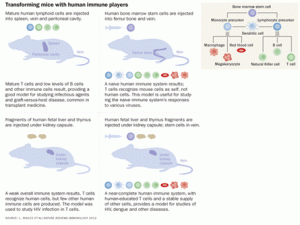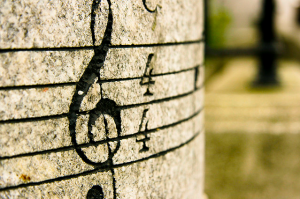Ordinarily, doctors wouldn’t have much choice for a 56-year-old patient with advanced colon cancer which is one of the deadliest diagnoses, but to try chemotherapy drugs one after the other each coming with their own massive side effects or to strike the tumour with a bunch of different chemicals that appeared to be functional in previous cases. But today, doctors have a new brilliant option! And that is to try out potential treatments on mice. Scientists were able to plant human tumours in mice before; yet, there was no guarantee as to how the mice would metabolically react with the implant. That is, if the mice’s reactions would be in anyway similar to that of humans.
In a new approach by Alice Chen, the Lemelsen-MIT prize winner at the University of Stanford in the U.S, young mice are engineered to lack immune systems and then receive portions of human immune system as transplants. As the mice grow older, they tend to develop a very human-like immune response system which, as a result, reacts to drugs and infectious agents just as human immune system would.
Dale Greiner of the University of Massachusetts Medical School said: “the idea is that you can take human immune systems and put them in a mouse and make them functional, and by doing so you can manipulate them as if you were manipulating little humans without ever putting patients at risk.”
Here is a video of Alice Chen explaining how she first invented this method by transplanting human liver cells into humanized mice.
 This video is from the youtube username Lemelson MIT
This video is from the youtube username Lemelson MIT
Already using this technique, for many cancer patients, scientists have been able to identify the correct treatment before therapeutically testing the drug on the patient. For instance, scientists at UC Davis of California have been able to develop a new drug delivery system for bladder cancer using humanized mice. In their experiment, mice were specially injected with bladder cancer cells from the patients with the disease and the new treatment method was tried out a dozen times on a number of these mice throughout the project. This way, the most reliable treatment was identified and used on human subjects.
But this is not the end! Humanized mice are not only useful in cancer treatment, but in studying the effect of infectious agents such as HIV and dengue virus, and complex diseases such as rheumatoid arthritis and diabetes. For instance, Doctor Greiner, studies the immune system in hyperglycaemic mice in pursue of a better understanding and therefore cure for type one diabetes which is an autoimmune disease.
Although the day your family doctor will be able to grow a colony of your personal humanized mice is still years away, this is definitely a revolutionary technique to attempt at fighting diseases that we have yet to cure.
-Ashkan Nasr





